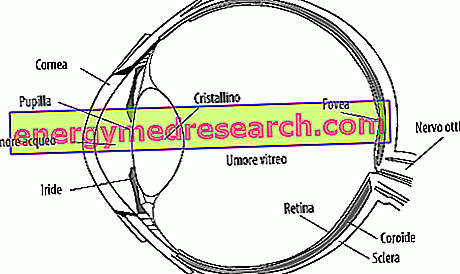Related articles: Tinnitus
Definition
A tinnitus is the perception of a different kind of noise (buzzing, whistling or roaring) and varying intensity, intermittent or continuous, in the absence of a real acoustic stimulus .
It is found by effect of pathological processes of various nature, affecting the inner ear, the auditory nerve or the neighboring anatomical structures.
Subjective tinnitus
A subjective tinnitus is a sound sensation not caused by external agents, but caused by spontaneous or pathological activities typical of the auditory system.
The inner ear is the site of typical onset tinnitus, as it includes the acoustic labyrinth and the nervous structures appointed for hearing. The perception of buzzing may depend on variations in the pressure of the labyrinthine liquids and changes in their chemical-physical constitution. A tinnitus of the inner ear can have a traumatic origin, as happens in the case of sudden changes in atmospheric pressure (barotrauma), exposure to loud noises (acoustic trauma) and lesions of the skull.
In Ménière's disease, a labyrinth dysfunction causes tinnitus, with hypoacusis and sudden vertigo.
The use of ototoxic drugs can also damage the inner ear (eg, quinine, salicylates, aminoglycosides, arsenic and streptomycin), resulting in auricular ringing.
A subjective tinnitus can appear in cases of infections (eg meningitis or neurosyphilis), tumors (eg, neuroma of the acoustic nerve or meningioma) and lesions of the central nervous system involving the auditory pathways (eg stroke or multiple sclerosis). Furthermore, hearing disorders are a symptom of aging (presbycusis) and otosclerosis.
The middle ear causes auricular buzzing, especially in the presence of catarrhal and congestive ear infections, dysfunctions or stenosis of the Eustachian tube.
The external ear causes this symptom in the course of diseases that lead to the occlusion of the ear canal. In these cases, subjective tinnitus is almost always one-sided (that is, perceptible to only one ear) and is accompanied by other disorders, such as a lowering of hearing (hypoacusis), a closed-ear sensation and a rumble of one's own voice (autophony). These forms generally regress with the cleaning of the auditory canal, except in the case in which there are no residual tympanic lesions.
Objective tinnitus
Objective tinnitus is very rare and is due to actual noises generated by physiological phenomena affecting structures adjacent to the ear. This symptom may be due to disorders of the temporomandibular joint, which can transmit even the faintest creaking of the articular surfaces. An objective tinnitus can also originate from the cavities of the auditory apparatus or from the spastic contraction of the palatine muscles of the palate, of the pharynx or of the tympanic chest. These spasms can be idiopathic or caused by tumors, head trauma, and infectious or demyelinating diseases (eg multiple sclerosis).
In most cases, however, the noise depends on diseases or abnormalities of the blood vessels near the ear, which cause an increased or turbulent flow. These include carotid artery aneurysms, atherosclerosis, jugular vein tumors and other vascular malformations. The objective tinnitus typically has a pulsating character (so they are synchronous to the heartbeat) or intermittent and, in some cases, they are audible even by external observers.
Possible Causes * of Tinnitus
- Anemia
- Cervical osteoarthritis
- Atherosclerosis
- Cataract
- Cervical whiplash
- Herpes zoster oticus
- Stroke
- Carbon monoxide intoxication
- Hypertension
- Meningitis
- Paget's disease
- Acoustic neurinoma
- Neurofibromatosis
- Ear infection
- Barotraumatic otitis
- otosclerosis
- Polycythemia vera
- Multiple sclerosis
- Syphilis
- Ménière syndrome



